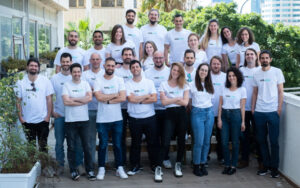Image credit: Depositphotos
When it comes to how women are represented in the workplace across the European Union, it is clear that more needs to be done. The gender employment gap has hardly narrowed since 2014 and persists in nearly every EU Member State.
The most recent European Jobs Monitor 2021 reports that two out of three net new jobs over the last two decades have been taken up by women, with the rise having the greatest impact on the top and the bottom of the wage distribution leading to low-paying jobs, formerly dominated by men, becoming dominated by women.
The Monitor says that women’s employment will have to grow at a rate at least three times faster than that of men up to the end of the decade to meet the gender and employment targets set out in the European Pillar of Social Rights Action Plan.
Female participation matters in the workforce not just in terms of gender parity, but because it makes economic sense. The OECD says that the economic loss due to the gender employment gap amounts to €370 billion annually, and that acting on it is both a social and an economic imperative. Improving gender equality could lead to an increase in GDP of up to €3.15 trillion by 2050.
Board participation
The European Union has recently agreed on “Women on Boards” legislation, which will require companies with at least 250 employees, across all 27 EU member states, to ensure that women take up at least 40% of non-executive board seats, or 33% of all board director roles by mid-2026.
“Diversity is not only a matter of fairness. It also drives growth and innovation. The business case for having more women in leadership is clear. There are plenty of women qualified for top jobs: they should be able to get them,” European Commission President Ursula von der Leyen said of the move.
In the US, a 2016 Harvard study of the 842 active companies on the Fortune 1000 discovered that women held 18.8% of board seats – an increase from 17.7% in 2014 and 14.6% in 2011. 45% of all companies on the Fortune 1000 had 20% or greater women on their board. Tellingly, over 55% of companies that became inactive on the index had just one or no women at all on their boards.
Having both men and women on teams means everyone benefits from different points of view, perspectives and life experiences, all of which feeds into creativity and innovation.
If you’re looking for a new job now at a company that will support your perspective, then we’re taking a look at three below with female-friendly policies. And there are plenty more to discover on the Silicon Canals Job Board too.
Vestiaire Collective
Luxury fashion pre-owned reseller Vestiaire Collective is hiring for a number of roles in its Paris location including developer, marketing and business analyst positions. This is a business with a conscience and diversity, equity and inclusion are central to everything it does. “We aspire to build a diverse and inclusive workplace where everyone can be their authentic selves, feel valued and be enabled to drive impact and grow their careers,” the company statement says. Benefits include flexible working arrangements (including WFH reimbursement), parental leave regardless of gender or family constructs, carers and compassionate leave, diversity and inclusion initiatives, employee discounts and the company will also give you 15 hours to help a charity of your choice. Check out open roles at Vestiaire Collective.
Hubspot
HubSpot was named Glassdoor’s fourth Best Place to Work in 2021, and its award-winning culture has been recognised by Great Place to Work, Comparably, Fortune, Entrepreneur, Inc., and more. Currently hiring in a number of European locations, its benefits packages differ depending on the territory you are applying in, but can include shares, study grants, pension, health insurance, life assurance, and coverage for long-term illness, for example. Work-life balance is prioritised here: In addition to a company-wide week off in July, HubSpot offers unlimited holidays. Discover open roles at HubSpot.
Indeed
In 2018, Indeed launched new ‘diversity scores’ to rank the best workplaces for minorities and women, using Fairygodboss and InHerSight as well as Comparably to provide the reviews. For its employees, it offers a multitude of benefits which differ across European countries. In Germany, for example, where health insurance is fully covered by the government, the company offers open paid time off, and each month Indeed takes a company-wide day off. Primary parents and caregivers can take 16 weeks of fully-paid leave with a return transition period. Secondary caregivers can take six weeks of fully-paid leave. Check out Indeed’s open positions.
Catch our interview with Paul Down, Head of Sales at Intigriti.









